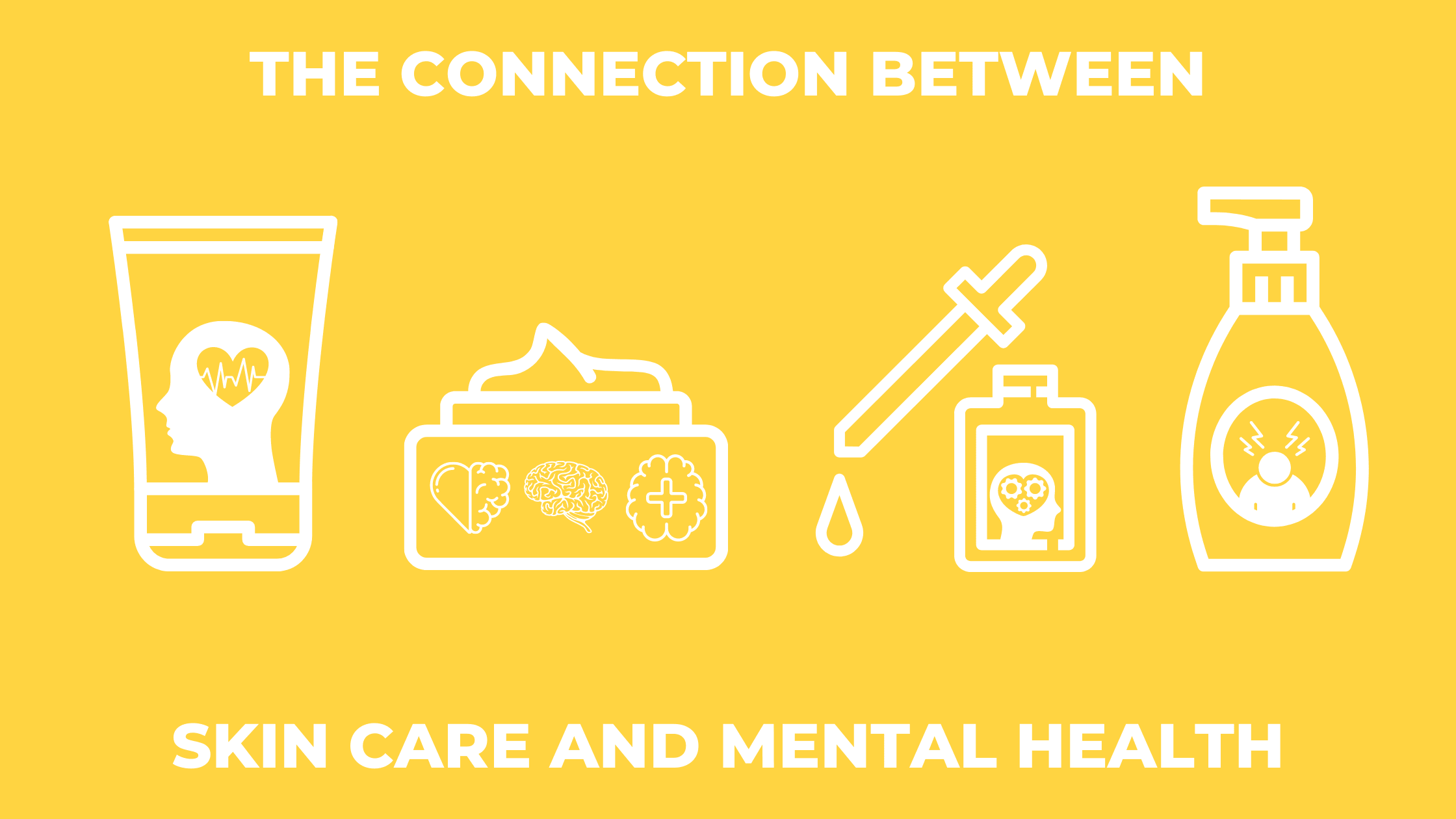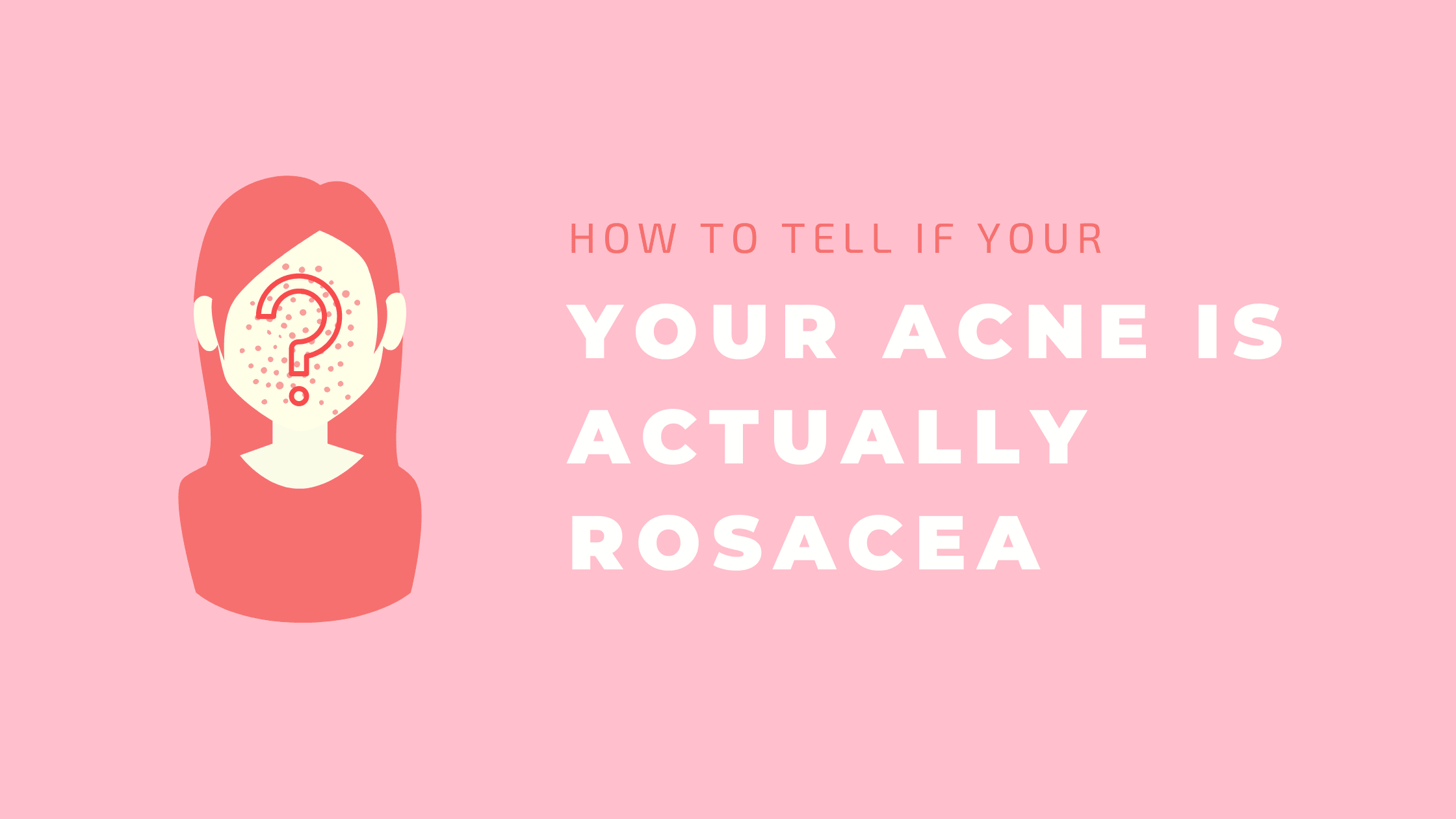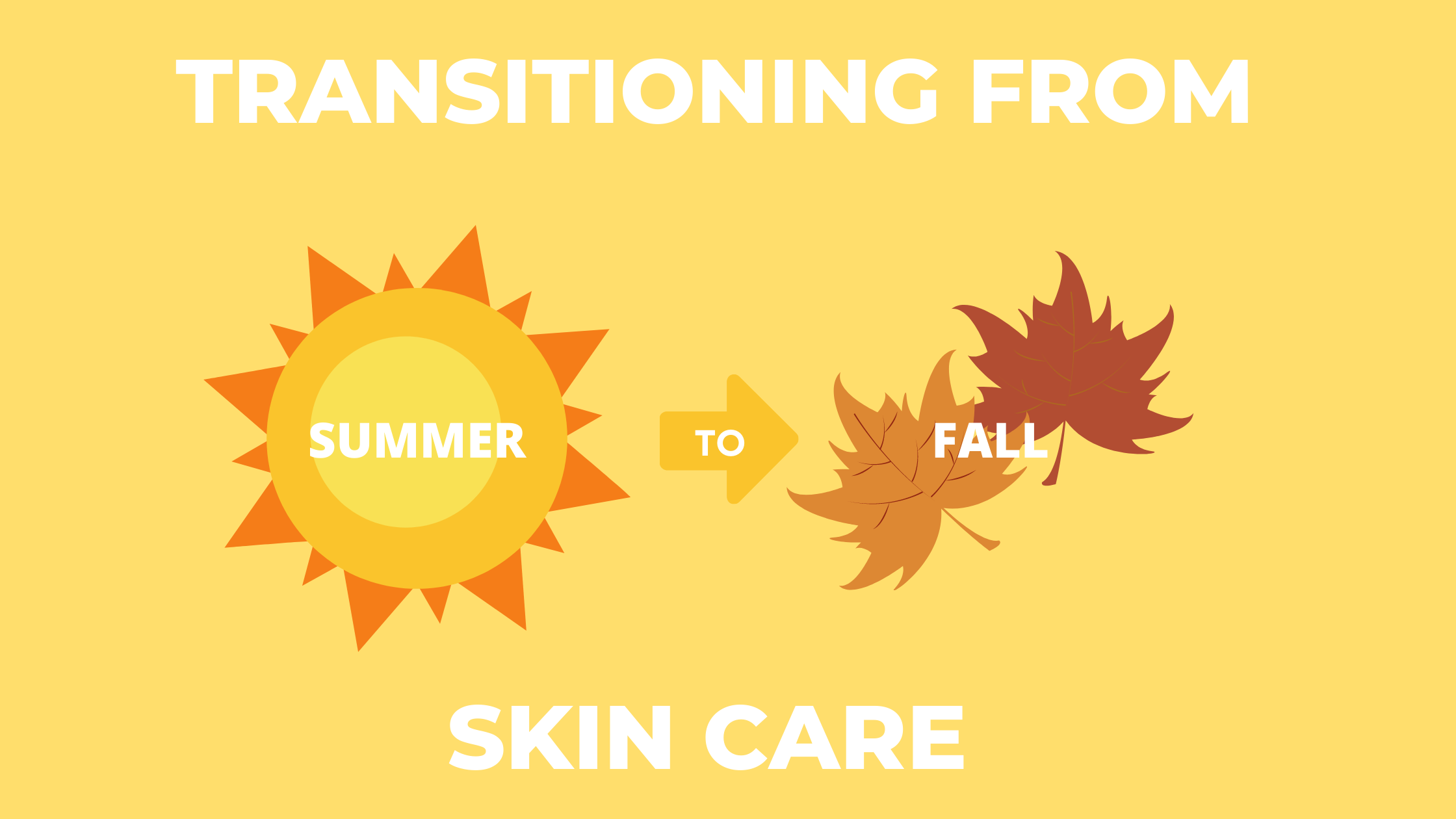
THE CONNECTION BETWEEN SKIN CARE AND MENTAL HEALTH
Has a breakout ever led to a breakdown? Well, you’re not alone. There’s a significant link between skin health and mental health that shouldn’t go unnoticed. Our mental health can have a direct effect on our skin, and vice versa, so it’s important to take control of your skin care and your self-care for the sake of your health.
The Brain-Skin Connection
Have you ever been so embarrassed that your cheeks and nose went pink? That blushing is the brain-skin connection at play. Embarrassment triggers our fight or flight response, and your body releases adrenaline. This causes your blood vessels to dilate to improve blood flow and oxygen delivery, and thus, you blush.
The brain and the nervous system influence the skin's immune cells (which have a direct effect on skin) through various chemical messengers and receptors, which respond to stress, anxiety, and other emotional factors.
Similarly to when we’re embarrassed, when we’re stressed our body assumes we are in danger and releases the hormone cortisol which increases blood sugar and slows function that your body deems nonessential in fight or flight situations (Mayo Clinic). Cortisol also causes an increase in sweat and oil production, which clogs pores and causes acne, and it suppresses the immune system so that it can’t adequately fight off inflammation and bacteria. This can lead to flare-ups of breakouts, rashes, infections, irritation, and skin conditions like alopecia areata (hair loss), psoriasis, urticaria (hives), and rosacea. To top it all off, cortisol depletes production of collagen and elastin, so skin cells aren’t renewing and repairing as they should, causing wrinkles and fine lines.
For a more in-depth look at how stress affects our skin, and how to manage it, click here.
Our brain and skin are in constant communication so gaining control over your emotions may be part of the solution for consistent breakouts and flare-ups.
Confidence
Stress and our mental health take a toll on our skin, and it works in the opposite direction as well. Our skin’s outward appearance has a direct effect on our mental health.
One of the first things that other people see is our skin, so when it’s ridden with breakouts or skin conditions it can be a hit to our self-esteem. While we shouldn’t harp on things we often can’t control, that’s easier said than done in a society that values appearance. So at times, it can be hard to leave the house without makeup when our skin isn’t in the best shape.
In a 2014 National Rosacea Society survey of 1,675 patients with rosacea, 90 percent reported lowered self-esteem, 54 percent reported anxiety, and 43 percent reported depression. More than half said they avoided face-to-face contact. It’s not always the skin condition itself that causes distress, but the fear of being judged negatively due to appearance.
No one is alone in feeling this way. We are conditioned to believe our outward appearance is important to how others perceive us, and it affects how we end up seeing ourselves. Learning to cope with insecurities surrounding our skin takes time and conscious effort, and the first step is realizing that everyone else feels this way at times. If your mental health really takes a toll due to a lasting skin condition, talking to a mental health professional can help guide you towards building confidence despite lingering skin issues.
On the positive side of things, having healthy clear skin can work wonders for your self esteem. InStyle's State of Skin study found that 76% of the women surveyed said they felt good about themselves if they thought their skin looked good. So just remember that breakouts often go away, and skin conditions can be managed with the proper skin care and diet. Focus on creating a skin care regimen that includes non-irritating, gentle, natural products, and get help from a dermatologist if your skin problems persist. Once your skin clears up, you can reap the mental benefits of healthy, happy skin.
Skincare as self care
Having a consistent skincare routine is crucial for self-care, and can work wonders for mental health. By taking a few minutes out of your day to cleanse and moisturize your skin, you are dedicating time to doing nothing but caring for yourself, and taking your attention away from outside stressors.
A daily skincare regimen will provide some stability and consistency throughout your week. Even if everything else is out of your control and stress-inducing, you can always take a few minutes out of your day to give your skin some love, and it will be reflected in your skin’s health and your mental health. You’ll get the satisfaction that comes from accomplishing an extra task that is purely for your own personal benefit and wellbeing no matter how small and insignificant it may seem.
Your skincare routine is also a time to practice mindfulness, which is the act of focusing on external feelings and sensations, and not getting lost in thought. If you pay attention to the feeling of warm water, smooth face creams, and slippery cleansers, your mind will be taken off stressful thoughts. Practicing mindfulness is directly linked to regulating emotions and reducing symptoms of depression and anxiety according to a study published by Frontiers in Psychology.
The physical feeling of cleansing can also soothe the body in similar ways that a massage does. Stimulating the skin increases blood flow and relaxes the muscles in the face.
At-home facials
If you need a little extra self-love, a facial can be the mood booster you’re seeking. If you want to treat yourself and splurge a little, book a facial at the spa or with an esthetician, but an at-home facial can be just as soothing.
Not only does the experience itself help you engage in mindfulness and relaxation, but just the anticipation of experiencing a happy event like a facial can release feel-good neurotransmitters in the brain.
So throw on your robe, light some scented candles, put on some soothing music, and give yourself an at-home facial to help relieve some stress. Here’s a step by step guide to giving yourself a facial, and don’t worry you don’t have to be a licensed esthetician to get the job done.
The connection between your mental health and skin’s health is tricky to navigate and can feel like a never-ending cycle of skin problems causing stress and stress causing skin problems, but realizing you’re not alone in the struggle and finding adequate help from both skin care and professionals can be the solution to your qualms.
Try these natural, fragrance-free skincare products for a daily regimen that'll ease your mind knowing you're caring for yourself with quality ingredients.



Leave a comment
This site is protected by hCaptcha and the hCaptcha Privacy Policy and Terms of Service apply.